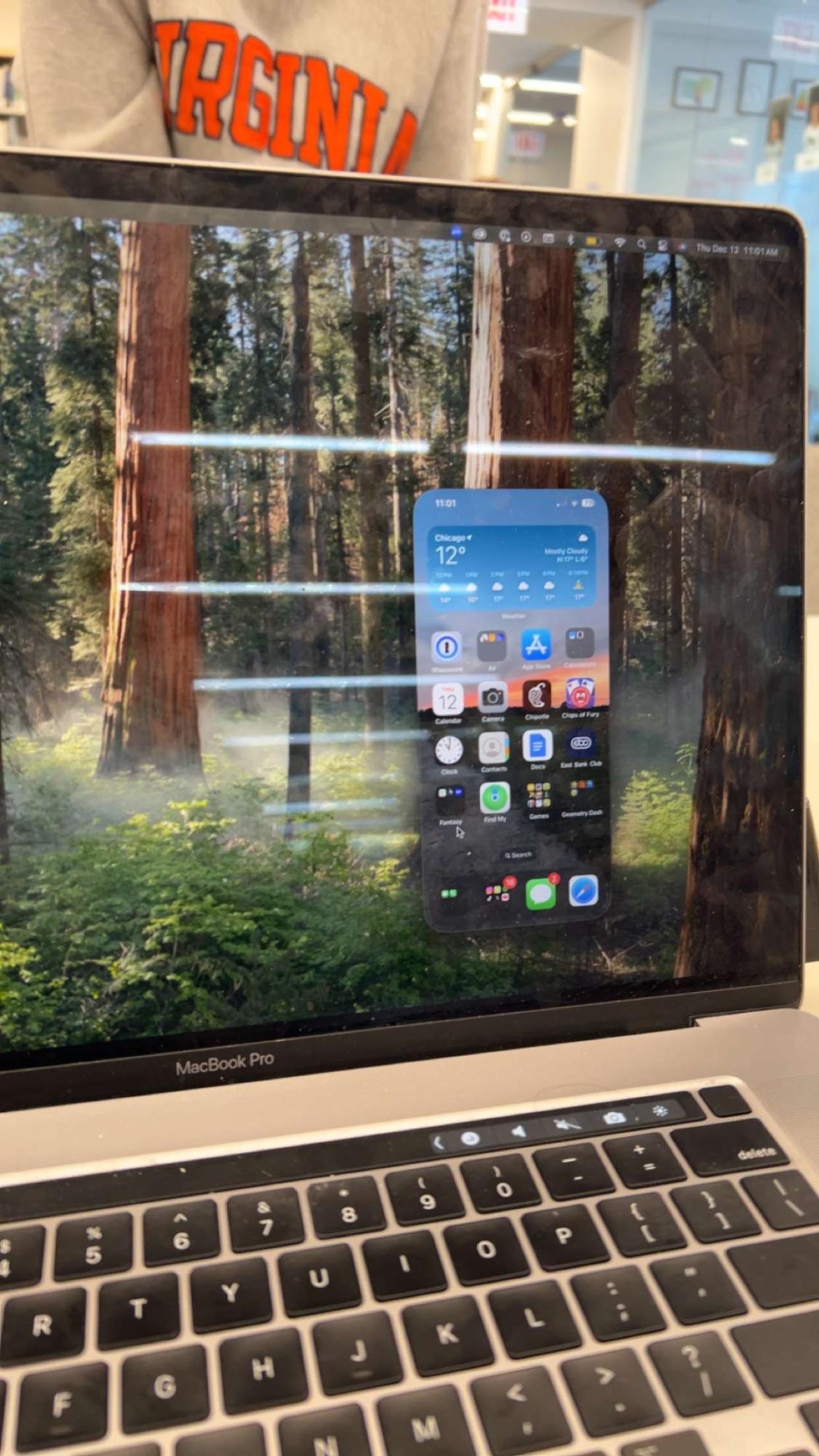From the beginning of this school year, Latin’s administration made it clear they wanted to promote more serious classroom environments. They decided to incorporate the phone box—a box where students place their phones at the beginning of the class, and pick up their phones on their way out.
I supported this new approach as a means of accountability. Banning phones in the classroom is definitely a great way to increase productivity and focus, and everyone benefits from focusing more inside the classroom.
Apple threw a wrench in Latin’s plan by releasing iPhone Mirroring.
With this recent iOS update, phone boxes serve practically no use. MacBooks now allow you to screen mirror your iPhone—meaning that anything you can do on your iPhone, you can do on your computer. Any form of social media or video game that can be used on your phone has become just as much of a distraction on computers. Anyone can scroll on TikTok or Instagram during class, while outwardly appearing to be hard at work on a laptop, completing a class assignment.
Junior Simon McCune said, “[Screen mirroring] just makes the phone box useless.”
To a certain extent, I agree with Simon. However, the phone box is still effective in classes that don’t use computers often. In my biology class, for instance, I’ve used my computer only a few times the entire year. When I enter my biology classroom, I put my phone in the designated box without hesitation. Without having my phone in my pocket, I am much more focused in class, as I do not feel the need to check for notifications or send anyone a message.
In classes that rely heavily on the use of computers, such as English and history, phone boxes are potentially less useful because of the screen mirroring feature.
Sophomore Mitch Mozes, however, does not believe phone mirroring is much of an issue. “I think it’s not really useful,” he said. “And I don’t actually see that many of my friends using it.”
While Mitch’s experiences have led him to believe phone mirroring is not detrimental in classes that rely heavily upon computers, I disagree. I’ve seen many of my friends using this feature, and it is definitely a distraction. For example, during work periods in class, I’ve come across students taking advantage of phone mirroring, using their computer to scroll through social media. In other words, while students’ phones are physically in the phone box, all of the distractions of their phones are in front of them.
Not every student knows about this new feature yet.
“I didn’t even know I could do this,” Junior Danny Leff said, “but now I’m definitely going to use it.”
As news of the phone mirroring feature spreads and more students become aware of its presence, it’s possible this semester will see an increase in phone mirroring. Consequently, Latin may find a decrease in students’ attention and productivity in classes that rely heavily on computer usage.
If an increase in phone mirroring comes to fruition, it may be difficult for faculty to control the situation. While some teachers may decide to reduce reliance on computers during class, others might not see reduced reliance on computers as a viable solution. While phone boxes entered Latin’s classrooms this fall with the best of intentions, it remains to be seen how the introduction of phone mirroring may curtail their usefulness.











